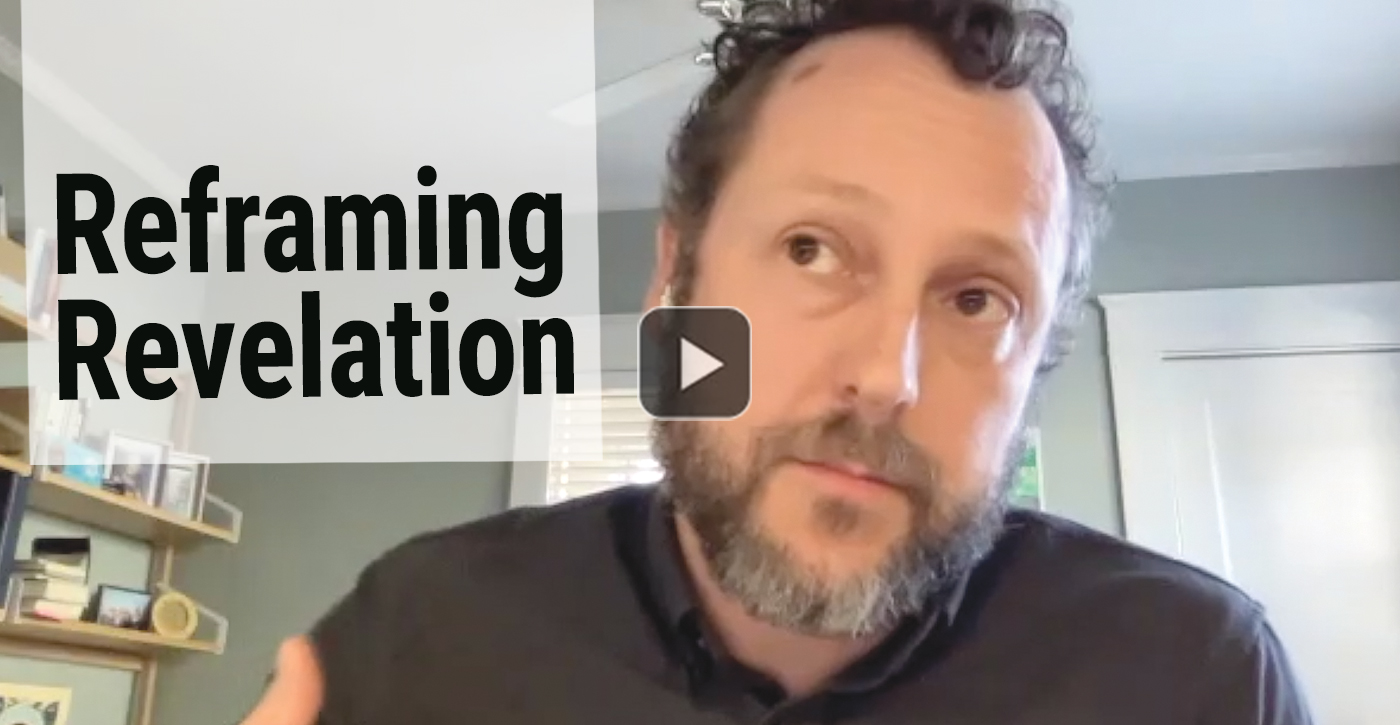An attender has been speaking in meeting for ten minutes. He reaches in his pocket, pulls out a newspaper article, and begins reading it aloud. The Friend clerking the meeting rises and says, "Our time here is short, Friend. Others may also have a leading to speak. Perhaps you might be willing to meet with interested Friends after meeting." Chagrined, the attender sits down.
In another meeting, a person rises to speak. She is dressed in near rags and has plastic bags piled on the bench next to her. She begins to denounce the U.S. president in loud, angry, four-letter words. A Friend or two rise, walk up to her and whisper, "This is not the place, Friend. Let’s go outside to talk about it," and lead her out of meeting.
A long-time Friend comes to meeting dressed in an outlandish costume. He talks at length about a subject that makes the other Friends uncomfortable. They ask him to sit down. He does this time, but he is back the next week dressed and speaking as before. His friends worry about him. His name is John Woolman.
Friends come to meeting to listen and, if so moved, to speak. There are no intermediaries, no priests, no walls between participants and God. They speak as the Spirit stirs them. But of course there are rules, guidelines that have been handed down and developed over the past 350 years: one doesn’t read from a book or magazine, because the Spirit moves spontaneously (although sometimes a passage from the Bible may be read aloud); one speaks only once during meeting, not repeatedly; one doesn’t answer or challenge what someone else has said; one respects the sensibilities of others if possible. If someone doesn’t follow these almost invisible and probably never codified rules, that person will be "eldered," spoken to either in meeting or after meeting by another Friend or perhaps someone from Ministry and Counsel. But these "rules" vary widely from meeting to meeting and are applied unevenly. Friends have become a highly individualistic Religious Society, with very different tolerance levels for rule breaking.
Take the first case, for example. An attender comes to meeting week after week and hears a great deal of speaking, some of which seems more political than spiritual, and some of which begins, "I was reading so-and-so’s book on such-and-such, and it came to me. . . ." What could seem more natural than actually to have the quote in hand rather than a loose paraphrase? So, out comes the clipping. No rules are posted to inform this person of the inappropriateness of this action. How should the rest of the meeting react to such a breach? Some Friends throw a flag on the play as soon as the offense is committed. Others, depending on the length of the article, might speak to the attender after meeting, letting him know in a kindly way what the invisible rule is.
The homeless or the mentally ill who wander into meeting may make others cringe with guilt out of shame that the larger society allows such things. But many times such people become active attenders and teach others through their lives in a way that most have been too blinkered to see. Sometimes, however, their presence is simply incompatible with silent worship, although there is seldom unanimity in the meeting on the matter. People have different levels of acceptance and tolerance. One person who suffered great trauma in her youth may speak in great anger, and the victims of her wrath may see her, rightly or wrongly, as schizophrenic and a danger to herself and others. Should she be barred from the meeting? Who makes that decision? Ministry and Counsel? What if others disagree? Does it fall to monthly meeting as a whole to make this very difficult and private decision?
And what of the John Woolman case? What if a member’s message makes others uncomfortable? In one meeting a member went on in excruciating detail about particular human rights abuses, and every-one squirmed. Finally someone said, "That’s enough now. It’s time to sit down." The speaker did, but after meeting there was a spirited discussion as to whether the eldering was proper or not. And that is one key to the question of eldering in meeting. If it is held in silence, the wrong kind of silence, and not talked about, it festers and hurts the community.
Then there is the practice of standing up while another is speaking, apparently intended to pass a silent message that the speaker is not speaking "in the manner of Friends." Sometimes it seems only to mean that the one standing doesn’t approve of what the speaker is saying. I have seen Friends actually walk up to the person and stand directly in front of him or her. To my mind, this practice is not eldering, but intimidation. Somehow the speaker is to be shamed into silence. This is a practice unworthy of Friends. If the message is actually so intolerable (and not just intolerably dull), it might be better to speak out and say so—but not out of anger. Of course, both the standing and the speaking out break an invisible rule, but meeting is usually resilient enough to survive. And if members are shaken by what occurred, then the clerk can ask those who wish to remain and discuss the issue to do so. That is the manner of Friends.
Part of the problem stems from our mixed and varied reasons for coming to meeting in the first place. Some come to seek spiritual deepening in their own lives and particularly enjoy a meeting that is mostly silent—or "dead," as critics say. In others the spirit takes a social shape, and they often feel moved to speak on particular political problems of our time—a "popcorn meeting," the silent group complains. Others come to meeting for comfort and solace, a place to speak their sorrows—"This isn’t a psychotherapy session," some others vent. Is this diversity incompatible? In an area with many meetings, an individual can seek out a community that best suits one’s needs. But where there is only one meeting, Friends who feel that meeting for worship doesn’t speak to their expectations may wander off.
Maybe the primary rule should be: All concerns are to be taken seriously until proven otherwise. Yes, the attender shouldn’t have read from a clipping. And yes, some concerns are expressed in an outrageously offensive manner. But that doesn’t mean that the message delivered is not of God.
Friends speak of threshing meetings, but winnowing is also a useful concept. At a threshing meeting we toss things on the floor and beat them until we can find the seed. In winnowing, we listen to others’ messages carefully, toss them into the wind as it were, and see what’s left after the chaff blows away in the Divine Spirit. By the nature of our imperfections there is much chaff produced in meeting. But the grain, the Seed itself, may dwell therein. Can you imagine the irreparable harm done to Friends had John Woolman been forced into silence or driven out of meeting? Prophets often arrive strangely garbed, and they can give unwelcome messages. Should we drive the angel (Greek for messenger) from our door?
Clearly much tolerance is needed. We all have our particular quirks that we carry with us. I don’t like singing in meeting, for example. As much as I like music (and I was raised singing in a Methodist choir), it gets in the way of my conversation with God. And the message is prepackaged, since the lyrics were inevitably written by someone else at another time. But occasionally someone in meeting does feel moved to sing someone else’s song, and sometimes many others join in. Should I stand in protest, or speak to the miscreant singer afterwards? Of course not; God knows the rest of meeting has to put up with my peculiarities as well.
None of this is new to anyone who’s been a Friend for very long. Meetings have had difficulties with dissenting Ranters from the very origins of the Religious Society of Friends. The James Nayler controversy was only one of many. John Woolman finally found loving acceptance from the monthly and yearly meetings he addressed. Many meetings have found within their own structure ways to deal with such disruptions or breaking of the invisible rules.
One difficulty is that discussions on eldering tend to be held within the confines of committees on ministry and counsel, since it is one of their jobs. Also, because the issue normally arises when there is a specific case, there are matters of privacy and sensitivities to be considered. The committee, usually composed of weighty elders, is the right place for dealing with individual cases. This committee, however, also has an educative role. A general meeting on eldering, held preferably when a large group of members and attenders can be there, may work to thresh out ideas that the committee puts forward. There will and should be many different points of view on this issue. Perhaps it would be well to add the sociability of a potluck dinner to ease the communication.
Many meetings hold a Quaker-ism 101 series yearly or more often. Many of these classes discuss the "invisible rules" as well as the history of Friends. But if not, it would be an appropriate place to talk about them and the practical reasons for them. Not, as the elders of Balby said, to lay a rule on anyone, but rather, to communicate the spirit of meeting.
Some meetings use clearness committees, others do not. Used properly, they provide a body of loving Friends (and attenders) who can discuss possible solutions to a perceived problem. Used improperly, they can be self-righteous and censorious. I once heard a Friend say, "You ought to have a clearness committee," in the same tone of voice one might have used in saying, "You need to have your head examined." But I have participated in clearness committees that did help to bring much light to the particular persons for whom the meeting was called, as well as to the committee itself.
When it is clear that what is being said in meeting, or the manner in which it is being said, is destructive to Friends manner of worship, something must be done. Sometimes (hopefully rarely) it must be done immediately, and that is usually the role of the clerk. But most of the time it is better to do it with some deliberation. And always with love. A significant number of attenders have been driven out of meetings by overzealous eldering that is unthinking and defensive rather than nurturing of the Spirit; and sometimes those attenders never return. What a loss to meeting!
What do meetings do in these cases? What "rules" have been developed? Are they in writing? If so, they, along with examples of how situations were dealt with, may be sent to Friends Journal to be forwarded to me. I am interested in gathering our collective wisdom on this difficult issue and publishing it, or, at least, sharing it with those who respond to this query.




